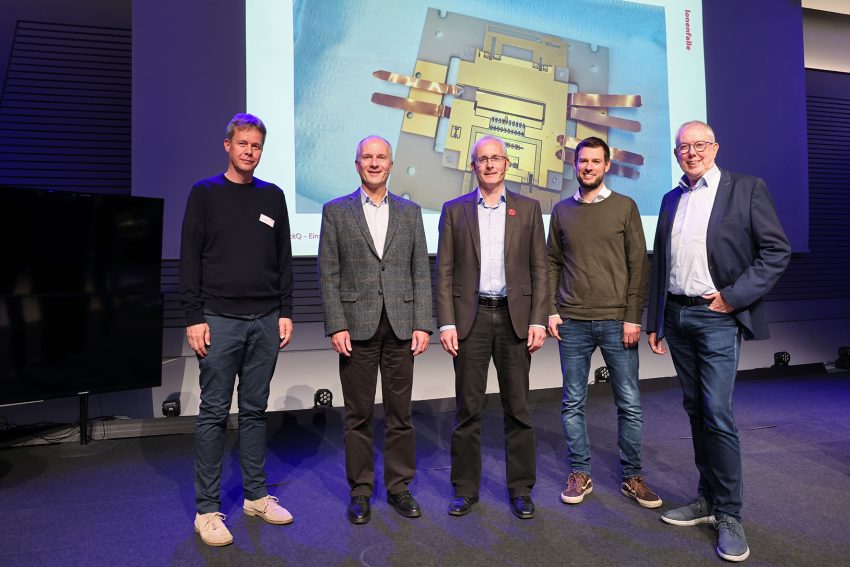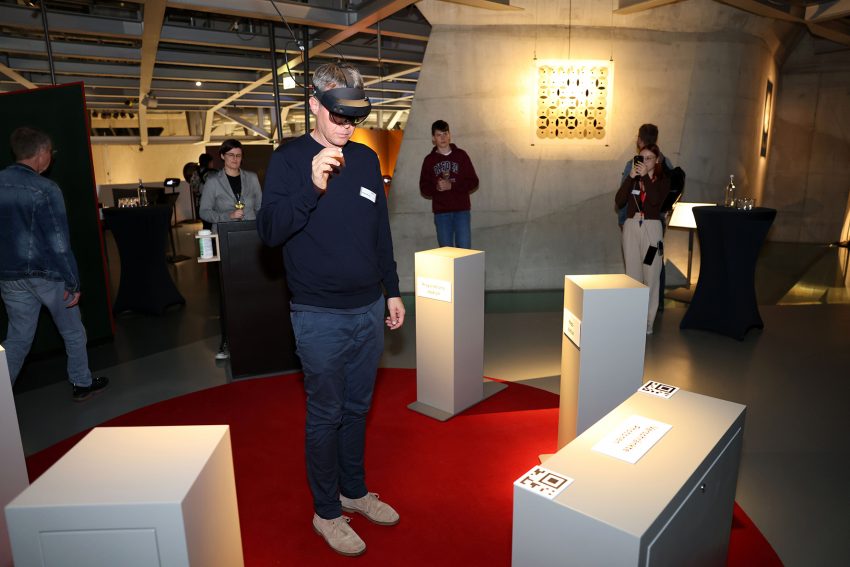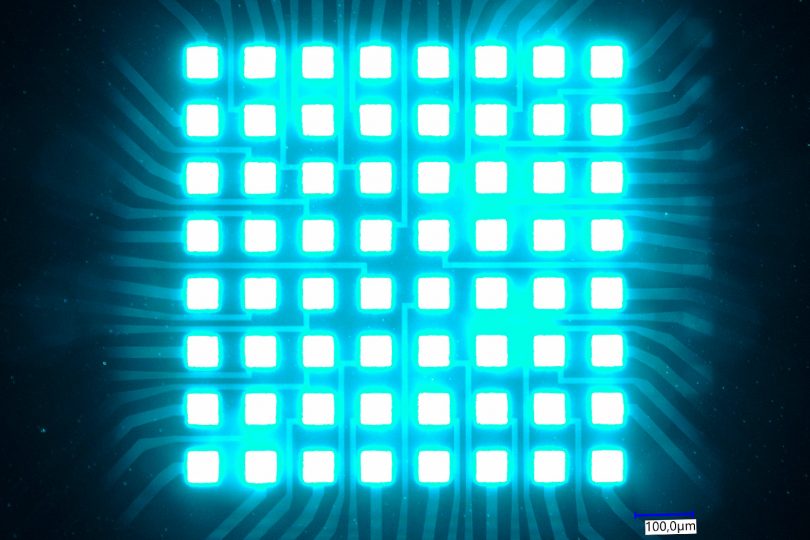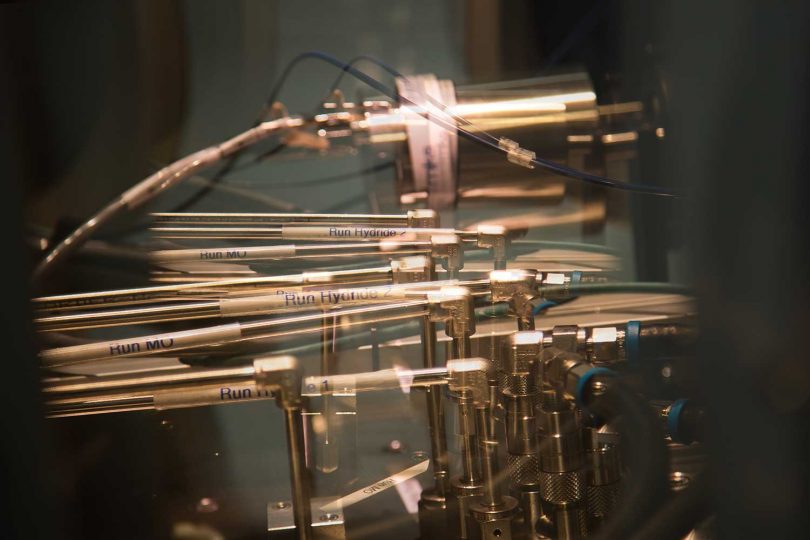Playing with quanta phaeno and TU Braunschweig present joint exhibits
What are phenomena such as quantum entanglement and quantum teleportation all about? In the BMBF project HolodeckQ, the TU Braunschweig and the phaeno Wolfsburg jointly developed interactive exhibits to illustrate quantum phenomena to a broad public in a motivating and comprehensible way. Since the opening evening “Start into the quantum world” on 15 November 2022, the first four exhibits are now attracting visitors to the quantum universe.
Made it! Dominik Essing, curator of the phaeno, has successfully manipulated and teleported a quantum with his thumb and index finger. Since Tuesday, guests can try out this virtual game at the Wolfsburg science centre. At the same time, there are three other quantum installations: a so-called Paul trap, with which small particles can be caught. An experiment that makes entangled quanta visible and the artwork “Polarization No33”, which uses rotating discs to represent a dance of flashing polarisation discs.
As the project’s key figures, Dominik Essing and Professor Oliver Bodensiek guided the guests at the opening through the new exhibits. Together they have set themselves the goal of making the quantum world accessible to a broad public. That is why, according to Dominik Essing, further development of phaeno’s new quantum area is planned for the future.
From quantum games to quantum research

Dominik Essing, Prof. Rainer Müller, Prof. Piet Schmidt, Prof. Oliver Bodensiek and phaeno director Michel Junge at the opening evening. Picture credits: Matthias Leitzke
What is now playfully easy in the virtual world with the help of augmented reality glasses is a complex research challenge in the real world. Professor Piet Schmidt, co-spokesperson of the Cluster of Excellence QuantumFrontiers, researches at Leibniz Universität Hannover and the Physikalisch-Technische Bundesanstalt how new quantum technologies can become reality. As guest speaker, he emphasised: “The quantum world has enormous potential for the future and Lower Saxony in particular is in an excellent position to exploit this potential. However, there are also a lot of challenges to overcome on our way there.
As the second guest speaker, Professor Rainer Müller from the Institute for the Didactics of Natural Sciences at TU Braunschweig directed attention to “Quantum Education”. With the question “Is it possible to understand quantum computers?” he made it clear that it is not only possible but urgently necessary. As a member of the European Quantum Flagship, he is working on various levels to encourage the quantum experts of tomorrow. In the near future, specialists for applications in the quantum world will be needed who are familiar with this new technology.



